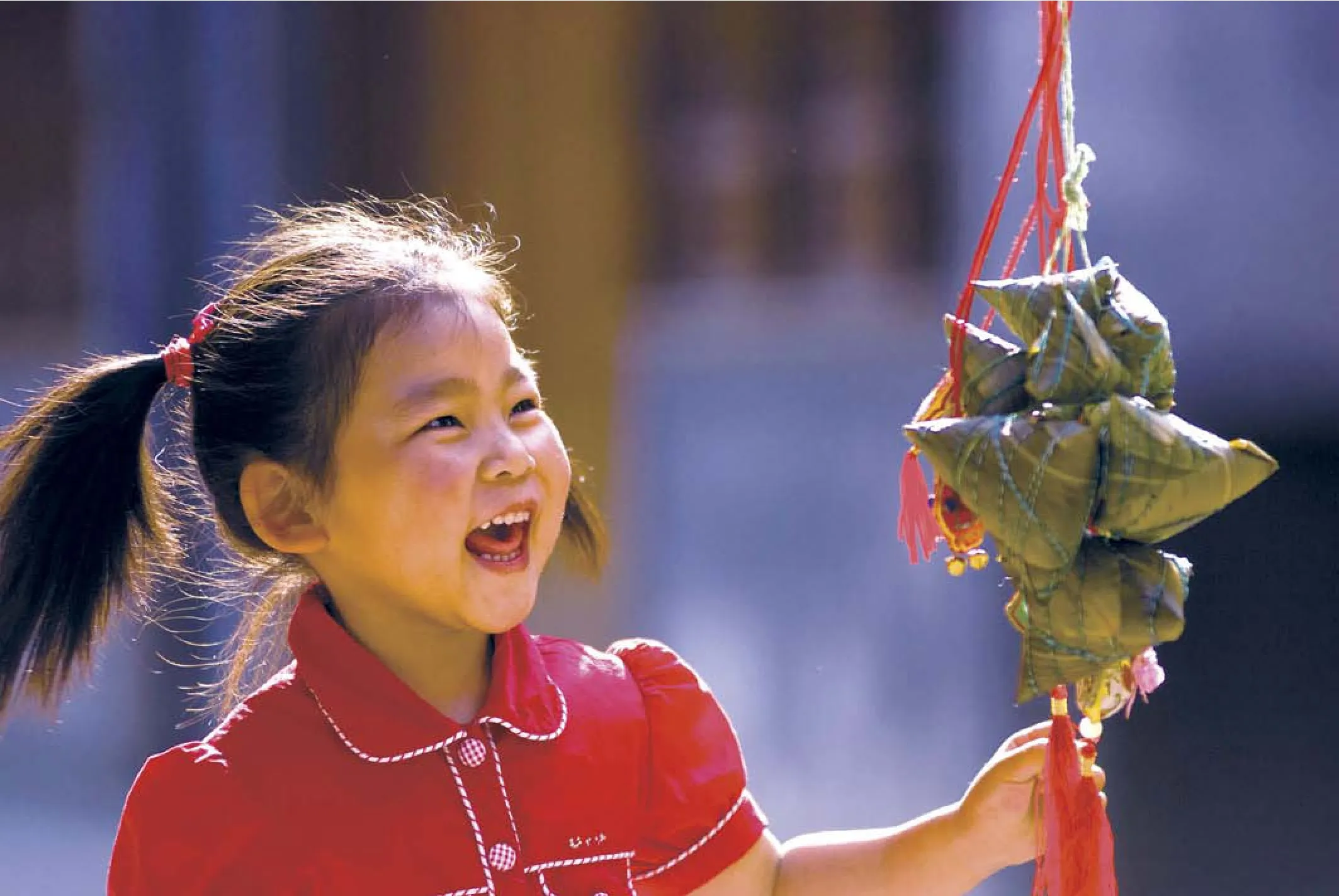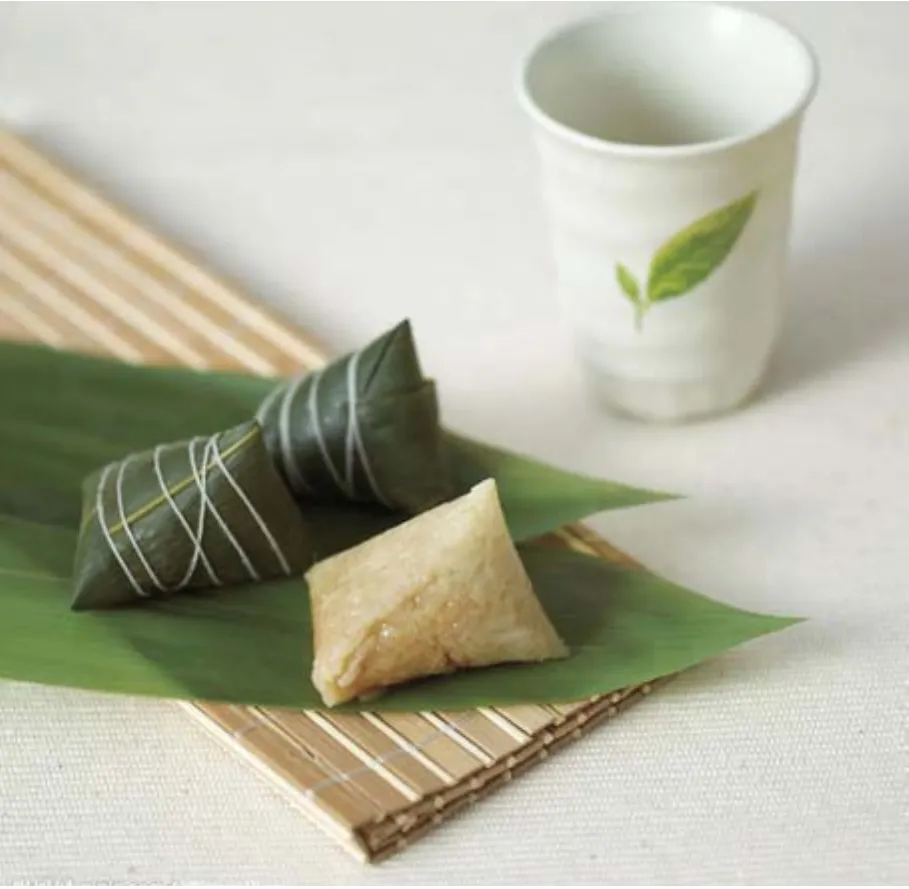Tales From a Festival
2011-10-14ByLIULIAN
By LIU LIAN
Tales From a Festival
By LIU LIAN
The Dragon Boat Festival, one of China’s traditions, has a long history and many legends attached to it

CFP
The Dragon Boat Festival is the fifth day of the fifth month according to the Chinese lunar calendar. In 2011, it falls on June 6 of the solar calendar.
The festival, which is celebrated by all Chinese, has a history of more than 2,500 years. As a popular ballad in ancient time goes: “The smell of rice dumpling spreads in the kitchen. The fragrance of mugwort leaves flls the whole house. Peach branches are decorated at the gate. Yellow wheat flls the eyes as you step out of the gate,” depicts how Chinese people celebrate the festival.
Nationally speaking, dragon boat racing and eating rice dumplings (zongziin Chinese), a pyramid-shaped snack made of glutinous rice wrapped in bamboo or reedleaves, are the two most important activities during the festival.
In 2008, the Dragon Boat Festival was listed as an offcial holiday in China and in 2009 it was included on the list of world intangible cultural heritage.
Origin
China is a big agricultural country, which means many traditional festivals are related to farming activities. The ffth day of the ffth month of the lunar calendar is the time when spring ends and hot summer begins.
There is a saying in Taiwan which goes,“Don’t store heavy coats before eating rice dumplings,” which means summer does not really start before the Dragon Boat Festival.
In the days before the Qin Dynasty (221-206 B.C.), the ffth month of the lunar calendar was regarded as a bad month and the fifth day of the month as a bad day, as animals regarded as poisonous by human beings, such as scorpions, centipedes, snakes, toads and wall geckos, start to come out after this day. Besides, after this day, the temperature goes higher, and people become more vulnerable to disease.
During the Dragon Boat Festival, people try any way to avoid the bad luck. For example, people paste pictures of the five poisonous creatures on the wall and stick needles in them. People also make paper cuttings of the fve creatures and wrapped these around the wrists of their children. Big ceremonies and performances developed from these practices in many areas, making the Dragon Boat Festival a day for getting rid of disease and bad luck.
The festival has more than 20 names, the most of all Chinese festivals, all originating from either the traditional activities of the day or the people related with this day.
For example, since it falls on the ffth day of the fifth month, it is also called Double Five Festival. The name Calamus Festival comes from the herb calamus that people hang on the doors on this day to keep away mosquitoes and worms. The name Herb-Bathing Festival comes from the activity that people always took a herbal bath on the day. The name Unwrapping Rice Dumpling Day comes from a competition where people, before eating rice dumplings, unwrap the leaves and compete to see whose leaves are the longest. Besides rice dumplings, another important food of the day is eggs, so it is also called Egg Festival.
Qu Yuan (339-278 B.C.) was an ancient character who has been widely believed to have connections with the origin of this festival.
Qu was a poet and politician in the ancient state of Chu during the Warring States Period (475-221 B.C.). Qu’s political ideas were rejected by the king of Chu who fnally was captured by another state Qin. Qin fnally took over Chu and Qu committed suicide by jumping into the Miluo River.
After Qu jumped into the river, people went there, searching for him either by swimming in the river or in boats. In order to keep fish away from Qu’s body, people threw rice balls into the river to feed them. This is believed to be the origin of the practice of eating rice dumplings and holding dragon boat racing during the festival.
Activities
Rice dumplings have been the most important food of the Dragon Boat Festival since the Jin Dynasty (265-317).
The rice dumplings are mostly coneshaped with reed leaves wrapping sticky rice fllings. Originally, people just wrapped plain rice in cane shoot leaves. After the Jin Dynasty, people started to add favoring materials to the rice. These may be mashed red beans, jujubes, chestnuts, salty meat and egg yolks.
The dumplings are categorized by the fillings. Parents like to make jujube dumplings for children as the children are about to take exams since in Chinese the name of the jujube dumpling is pronouncedzao zong, which sounds similar withzao zhong, meaning the passing of exams at an early date. This tradition has remained until today in some places.
In the Tang Dynasty (618-907), the rice dumplings were made in subuliform or rhombic shapes, and during the Song Dynasty (960-1279), rice dumplings became very popular. After the Ming Dynasty (1368-1644), reed leaves replaced cane shoot leaves as wrapping material.
Dragon boat racing is mainly popular in the area south of the Yangtze River. Manyemperors in China’s history, since the Tang Dynasty, enjoyed watching dragon boat racing during the festival. The dragon boats are mostly long and narrow and made in the shape of a dragon. They are made of wood and decorated with colorful paintings. The big boats can hold as many as 100 persons. Before racing, people normally hold ceremonies to offer sacrifce to the gods and pray for safety and victory in the race.

hUANG XIAOYONG

FILE
Apart from eating rice dumplings and dragon boat racing, there are many other activities celebrating the festival, including hanging mugwort leaves on the wall, burning Chinese herbs and drinking realgar liquor. Realgar is a kind of white spirit or yellow rice wine. The ancient Chinese believed drinking realgar liquor could keep away disease and evil spirits. Parents even applied realgar liquor to children’s foreheads, ears, noses, hands and feet to protect the children from bad luck. In some places, women wear head decorations made of wormwood. People also make paper cuttings of tiger and paste them on windows and gates, since they believed tigers can scare disease and poisonous animals away. People also give a kind of pocket bag, made of silk and containing herbs, as a gift to friends for health and good luck.
The author is a folklorist and senior editor of theAcademy Press
